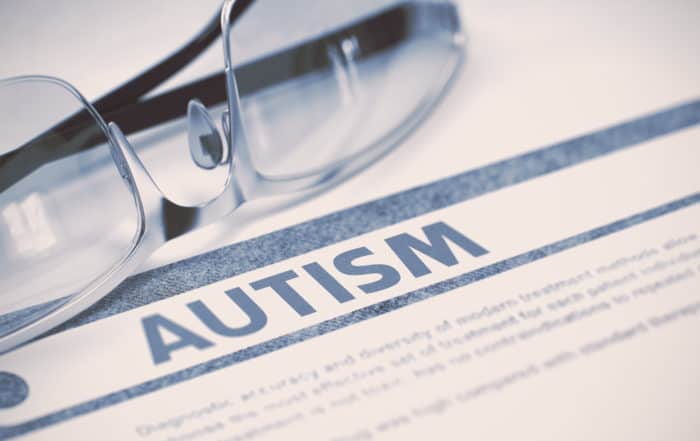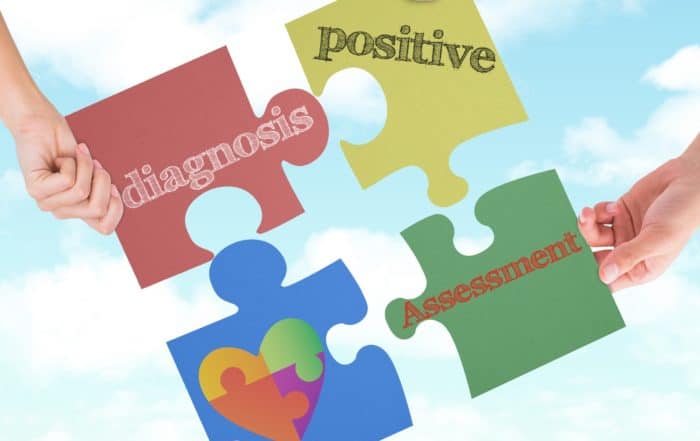Dr. Gray Atherton discusses the critical role of age and age of diagnosis in shaping the quality of life for autistic individuals. She provides a brief history of autism understanding and considers how changes in diagnostic criteria and cultural stigmas have affected the “lost generation.” The speaker details two studies that emphasize the importance of early intervention and how best to support people who receive a late diagnosis. Atherton explains that diagnosis directly affects quality of life, making detection and diagnosis critical for adults. She notes that further research must incorporate lived experiences and underscores the need for investment in care across the lifespan.
Take the knowledge quiz for this presentation HERE
In this webinar:
2:30 – Autism prevalence estimates
5:00 – Diagnosis differences by gender
8:30 – Autism through the ages
10:30 – DSM description evolution
13:15 – Special education and the Salamanca Statement
17:10 – Changes in autism assessments
18:20 – The lost generation
21:00 – Study: Age of Diagnosis, Autistic Traits, and Quality of Life
23:25 – Results
27:00 – Quality of life and aging
31:00 – Study recap
31:30 – Study: Lived experiences of late diagnosed adults
33:20 – Themes and results
34:25 – Participant quotes
39:00 – How to disclose
41:20 – Overview of study results
44:35 – Future directions
47:22 – References and contact information
47:30 – Q &A
Introduction
Atherton states that autism is a lifelong condition and highlights that less than 1% of research funding goes to lifespan issues in autism. She discusses differences in prevalence rates by country and gender (3:20) as well as environmental and heritability drivers (6:30). The speaker provides a brief history of autism understanding through the ages, highlighting significant milestones and epidemiological studies from 1943 to today (8:30). She details changes in autism prevalence from 4.5 in 10,000 children in 1966 to 1 in 54 children in 2013 (11:30). Atherton attributes the rise in prevalence to improved diagnostic practice and increased awareness and educational inclusion (12:25).
The “lost generation” refers to autistic individuals who received an autism diagnosis in adulthood and therefore lost the time and support afforded to those who receive an early diagnosis (18:20). Atherton outlines two recent studies investigating why these individuals are being missed and how it affects their quality of life:
Study One: Age of Diagnosis, Autistic Traits, and Quality of Life
The first study focused on understanding the impact of age of diagnosis on quality of life and autistic traits. Atherton and her colleagues examined a sample of individuals diagnosed with autism later in life by assessing responses to five autism diagnosis and symptom questionnaires (21:00). Findings revealed that about two-thirds of females were diagnosed over 18. In contrast, the majority of men were diagnosed under 18. Despite being diagnosed later in life, females reported high levels of autistic symptoms (24:45). There was a significant association between late diagnosis in adulthood and lower quality of life. These individuals reported higher levels of autistic traits, including social anxiety, loneliness, and lower satisfaction with life. In contrast, earlier diagnosis was associated with better quality of life outcomes (29:15).
Study Two: Qualitative Interviews with Late Diagnosed Adults
The second study involved qualitative interviews with adults who received an autism diagnosis later in life (31:30). Atherton highlights the importance of exploring their lived experiences to gain insights into the challenges and benefits of late diagnosis. Themes found during interviews included barriers to diagnosis, negative sentiments to non-diagnosis, benefits of diagnosis, and the pros and cons of receiving a diagnosis (33:20). The speaker quotes study participants for each theme, demonstrating the intersectionality of late diagnosis and quality of life. Overall, participants overwhelmingly expressed positive sentiments about receiving a diagnosis in adulthood. One person described it as a signpost that provided answers and guidance on how to approach life differently and feel proud of one’s identity (37:29). Diagnosis brought relief, clarity, access to appropriate support, and personal advocacy. However, participants also expressed some barriers to diagnosis, such as parental perceptions and societal misconceptions about autism (39:20).
Implications of Late Diagnosis
Atherton asserts that these findings underscore the significance of early diagnosis in autism (41:25). She highlights diagnostic disparities between men and women and considers potential drivers. The speaker emphasizes that receiving a late diagnosis matters and assures viewers that, although a late diagnosis may be complex and confusing, the identity and understanding that come with it can have a significant positive impact on personal acceptance (43:15). Early detection enables timely interventions, tailored educational approaches, and access to support services, all of which contribute to better outcomes for autistic individuals.
Future Directions
The presenter highlights the need to recognize autism in females and change stereotypes of autism as a male condition. We must also reduce stigmas, continue care into adulthood, and support the “lost generation” as they realize their diagnoses. She asserts the need for increased research into cultural differences, societal perceptions, and access to diagnosis and support (45:00). The speaker also discusses the significance of studying the experiences of individuals from diverse backgrounds, including women, people of color, parents of children with autism, and employment experiences of autistic people.
The speaker:
 Gray Atherton, PhD, has a BSc in Child Development from Vanderbilt University, a Master’s in Counselling from University of Houston, and a Ph.D. in Educational Psychology and Individual Differences from University of Houston. She has previously lectured at University of Houston and the University of Wolverhampton. Prior to entering academia, Gray was a counselor for adolescents with neurodevelopmental conditions. “I am interested in understanding how people with autism spectrum condition see the social world. Specifically, I explore individual differences in social processing and how these differences often found in people with autism also exist in the general population. I also investigate anthropomorphism, or seeing the human in the non-human, and how this relates to social processing in autism. To investigate this I am developing virtual reality techniques that allow for anthropomorphic experiences. My other research interest lies more broadly in embodied social processing. I am particularly interested in how movement can affect the way we see ourselves and our social partners, and how this can be used to understand special populations.”
Gray Atherton, PhD, has a BSc in Child Development from Vanderbilt University, a Master’s in Counselling from University of Houston, and a Ph.D. in Educational Psychology and Individual Differences from University of Houston. She has previously lectured at University of Houston and the University of Wolverhampton. Prior to entering academia, Gray was a counselor for adolescents with neurodevelopmental conditions. “I am interested in understanding how people with autism spectrum condition see the social world. Specifically, I explore individual differences in social processing and how these differences often found in people with autism also exist in the general population. I also investigate anthropomorphism, or seeing the human in the non-human, and how this relates to social processing in autism. To investigate this I am developing virtual reality techniques that allow for anthropomorphic experiences. My other research interest lies more broadly in embodied social processing. I am particularly interested in how movement can affect the way we see ourselves and our social partners, and how this can be used to understand special populations.”
Take the knowledge quiz
Can’t see the quiz below? Take it online HERE
How Age – and Age of Diagnosis – Affect Quality of Life
Dr. Gray Atherton discusses the critical role of age and age of diagnosis in shaping the quality of life for autistic individuals. She provides a brief history of autism understanding and considers
Delayed and Missed Diagnoses of Autistic Women
Hannah Belcher, Ph.D., Autistic researcher, speaker, and author, discusses the often late and missed diagnosis of autistic females. She dives into the gender gap inherent in autism research, assessments, and clinical understanding, demonstrating
Behavioral and Brain Signatures of Autism in Females
Kaustubh Supekar, Ph.D., examines recent findings about gender/sex differences in autism phenotypes and brain organization. He highlights the underrepresentation of females in autism and underscores the need for a large-scale science approach. The
Autism and Eating-Related Behaviors
Gregory Wallace, Ph.D., discusses eating-related behaviors in autism. He examines potential drivers of food neophobia and presents novel studies on the cognitive/behavioral correlates of eating in the absence of hunger (EAH). Wallace defines
Job losses, cuts in hours or pay during COVID increase depression in adults with ASD
A new study indicates that rates of depression rise significantly in individuals with autism spectrum disorders (ASD) if they experience a job loss or reduction in hours or pay. “Though unemployment has
Editorial—Needed: A Standard Battery of Assessments
Currently, there is no shortage of assessments for children or adults with autism. In fact, dozens of such assessments are in use today. However, I believe there is a clear need for







